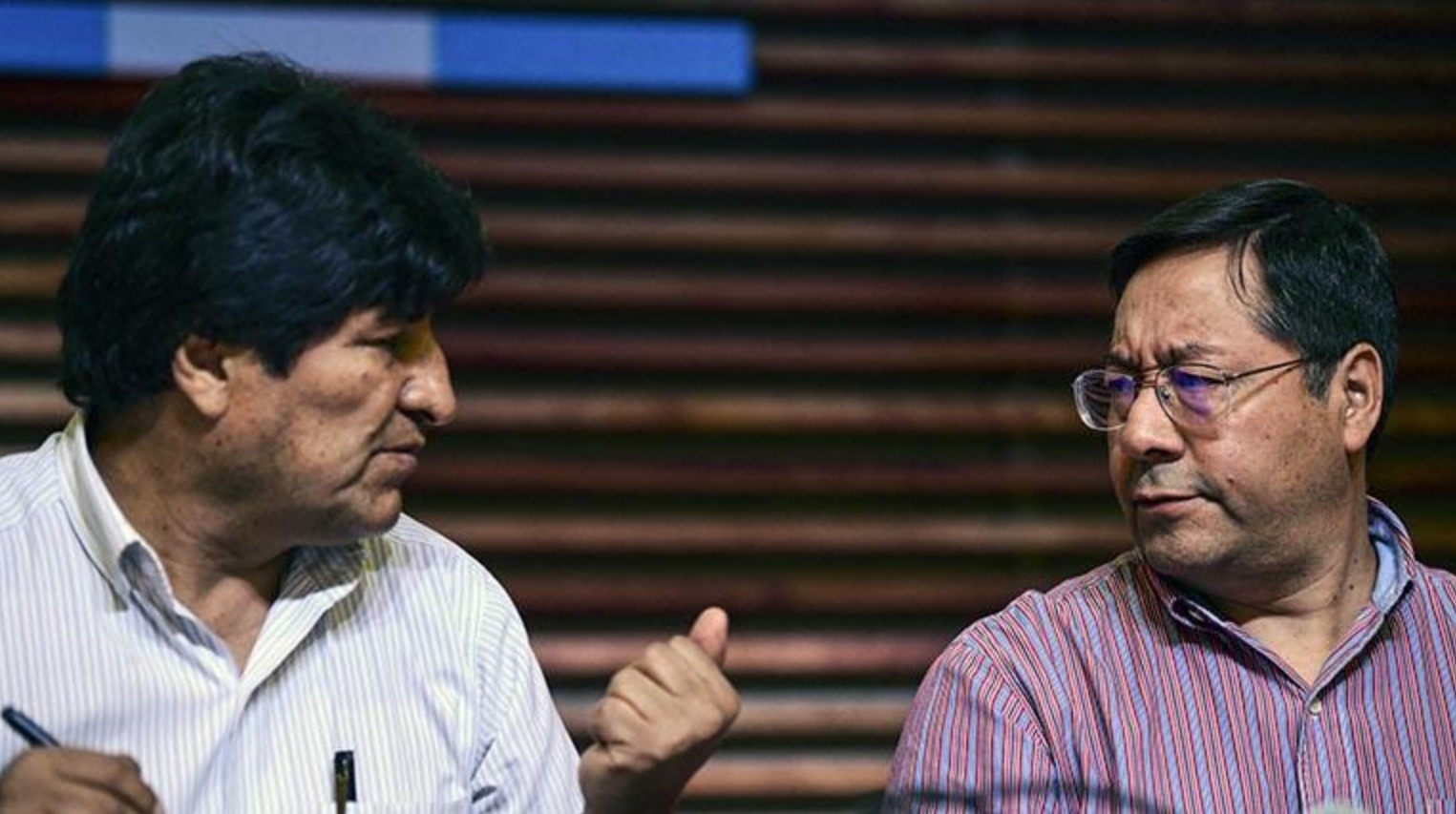When Luis Arce was elected president of Bolivia in 2020, he did so supported by a solid social base with more than 55% of the votes, but under the approval of the former president and leader of the Movimiento al Socialismo (MAS), Evo Morales. Opposition and critical voices anticipated that the new ruler would be a simple extension of his predecessor and the more moderate ones doubted that he would have his own agenda. Although at the beginning the influence was evident, since mid-2022 discord began to surface and soon turned into huge cracks, despite initial attempts to deny the rupture. Today the ruling party is divided into two factions: the “arcista” or renovating wing of the president and the “evista” or radical wing of the former president.
The election race to 2025
Morales, whom his followers call the líder indiscutible (undisputed leader) of the MAS, was already burdened with leadership wear and tear after his failed attempt to stay in power. From his exile in Argentina, Morales’ bet on Arce, who was his Minister of Economy (from 2006 to 2017 and then in 2019), went beyond choosing a successor. Morales needed to block the one he considered a real threat, the current Vice President David Choquehuanca, who had distanced himself much earlier.
The idea of appealing to another indigenous representative was seen by some MAS supporters as a necessary renewal and a sign that the party was transcending its historic leader. While Evo’s popularity as a union leader and his history with the social movements still allow him to cling to his ambitions, the reality is that he does not govern and does not influence who governs.
His vehement requests to influence the government’s decision making are not heeded. Neither his close circle has a place in President Arce’s administration. Renewal, first as a concept and now in tangible actions, has knocked down the pedestal of Morales, who is convinced that he is the only option to save the country from the “opportunist and coup-plotting right wing”, even if it means deepening the division of his party.
From the trenches
Evo has kept himself on the public agenda through social networks, the media or directly through his Sunday radio program, El líder de los humildes, which is broadcast by Radio Kawsachun Coca from Chapare, in the central region of the country, where he has the greatest support. This strategy is a characteristic practice of populist leaders. As stated by Argentine journalist and writer Adriana Amado, in her book Política pop: De líderes populistas a telepresidentes, “the pop leader needs a press that venerates or criticizes him, but that never ignores him, and that speaks more of his image than of his deeds”.
From there and faithful to his style, the leader of the MAS is lashing out against Arce’s administration, and the scenario for his criticisms could not be more propitious. Drug trafficking, citizen security, education or economy, on all fronts the pressures grow.
However, neither arcistas nor evistas are very limited in their attacks and the incriminations have reached the sons of Arce and Morales. Although the Government tries to minimize the situation, the internal party dispute has more space and interest than the administration itself. Also, in the Parliament, Morales’ supporters hinder the approval of regulations in order not to favor Arce’s side.
Morales’ attack has been such that he has accused the Government of being directly involved in drug trafficking activities and has denounced acts of espionage. In this context, he has raised the need to organize Peruvian-style rounds as a self-defense mechanism of indigenous and peasant sectors, to control the presence of foreigners in the tropic of the Cochabamba department.
Arce is more cautious and his media strategy is almost the opposite of Morales’. The president avoids confrontation and clings to silence, while his close entourage has assumed the defense, especially of the ministers of Government, Eduardo del Castillo, and Justice, Ivan Lima, both strongly questioned by Morales, who has asked (directly) for a change.
Arce’s defensive strategy holds on to the “successful” economic management, even though the current situation is not encouraging. The shortage of dollars and the over demand of the currency, the energy trade deficit, the fall of sovereign bonds, the reports of risk rating agencies and the uncertainty of the population put the president in the eye of the storm.
Faced with this complex context, President Arce has turned his attention to social organizations to ensure support and since the beginning of 2023, he has been meeting weekly with organizations that have recently declared him, in response, “sole leader and president of the Bicentennial of the Plurinational State of Bolivia”.
Political suicide?
This estrangement, which has turned into a relentless fight, has been seen by former Vice President Álvaro García Linera as a “political suicide”. These statements have generated surprise, since he has been a staunch defender of Morales. Nevertheless, García Linera has been critical and questions the consequences of this division for MAS.
The cost of the renovation is taking its toll on Morales, since the so-called “process of change”, the banner of his party politics since 2006, when he first took office, has been put at stake. Yet, both continue to lean towards division, which raises certain questions: what is the future of the ruling party; what will be the political cost for the country?
In the context of political disputes and a weak opposition that is not taking advantage of the moment, it is difficult to predict how the Bolivian electoral scenario will be reconfigured with respect to the 2025 general elections.
*Translated from Spanish by Micaela Machado Rodrigues













